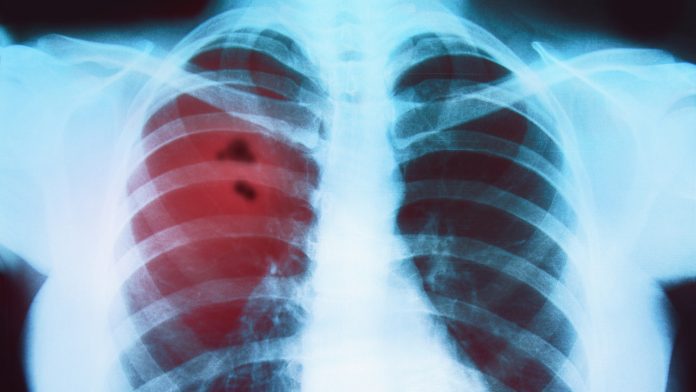
A randomised, controlled trial comparing two types of emphysema treatment has found a less invasive treatment to be as effective as invasive surgery.
The trial compared invasive lung volume surgery and the less invasive bronchoscopic lung volume reduction. The results of the study were presented at the European Respiratory Society International Congress in Barcelona. It is hoped these findings will help doctors and patients choose the best approach to emphysema treatment.
What is Emphysema?
Emphysema is a chronic lung disease, which is often caused by smoking. The walls of the air sacs (alveoli) in the lungs are weakened and can disintegrate, leaving behind abnormally large areas that remain filled with air when the patient breathes out. Symptoms of emphysema include coughing, breathlessness, fatigue, and weight loss.
Emphysema treatment, for cases where the lung damage is uneven, can involve reducing the lung by 20%-30%. This can improve airflow and the exchange of gases in the alveoli in the remaining portions of the lungs.
Lung volume reduction surgery (LVRS) involves a keyhole operation on the patient’s chest to access the lungs. Surgeons then remove the area of the lung most affected by emphysema.
With bronchoscopic lung volume reduction (BVLR) emphysema treatment, a fibre-optic camera is inserted into the lungs via the mouth or nose. One-way valves (endobronchial valves) are inserted into the airways to target the loge of lung, this causes the lung to deflate.
“Both procedures have been shown to produce positive results in terms of lung function, breathlessness, exercise capacity, and quality of life. Until now there had been no direct comparison of the two to inform decision-making when a person seems to be suitable for either. Bronchoscopic lung volume reduction is a less invasive option and is thought to be ‘less risky’ but, until now, there has not been substantial research to support this,” said Sara Buttery, a research physiotherapist and PhD candidate at the National Heart and Lung Institute, Imperial College London.
Less invasive emphysema treatment is equally affective
In the trial, Buttery and her colleagues randomly selected 88 patients with an average of 64 to receive the two different forms of emphysema treatment. 41 patients received LVRS and 47 received BLVR. The researchers then monitored the outcomes in each patient for one year.
The patient outcomes were measured using the iBode scoring system. This system scored patients based on body mass index, airflow obstruction, breathlessness (dyspnoea), and exercise capacity. The researchers also examined the residual volume (RV%) of each patient, this provided a measure of the amount of ‘gas-trapping’ or excess air left in the patient’s lung after exhaling.
The results of the study found both forms of emphysema treatment to be equally safe and effective. “Surgery and valve treatment produced similar reductions in gas trapping and similar improvements both in the total iBODE score and in each of the individual measures that it is made up of,” said Buttery.
“Both treatments also appeared to be equally safe, with only one death in each arm of the trial after a year, despite this being a population with severe lung disease” she added.
“The results of this study will be important for clinicians and patients in guiding decision-making around which emphysema treatment option to choose when a person is suitable for either approach, providing more evidence around expected outcomes and risks.”
Although the study supported the hypothesis that less invasive emphysema treatment was just as effective as invasive surgery, Buttery has suggested that further research in larger trials is necessary. Buttery believes more research is needed into whether individuals who respond especially well to one or other approaches can be identified, as well as more research into the cost of the two forms of emphysema treatment.









